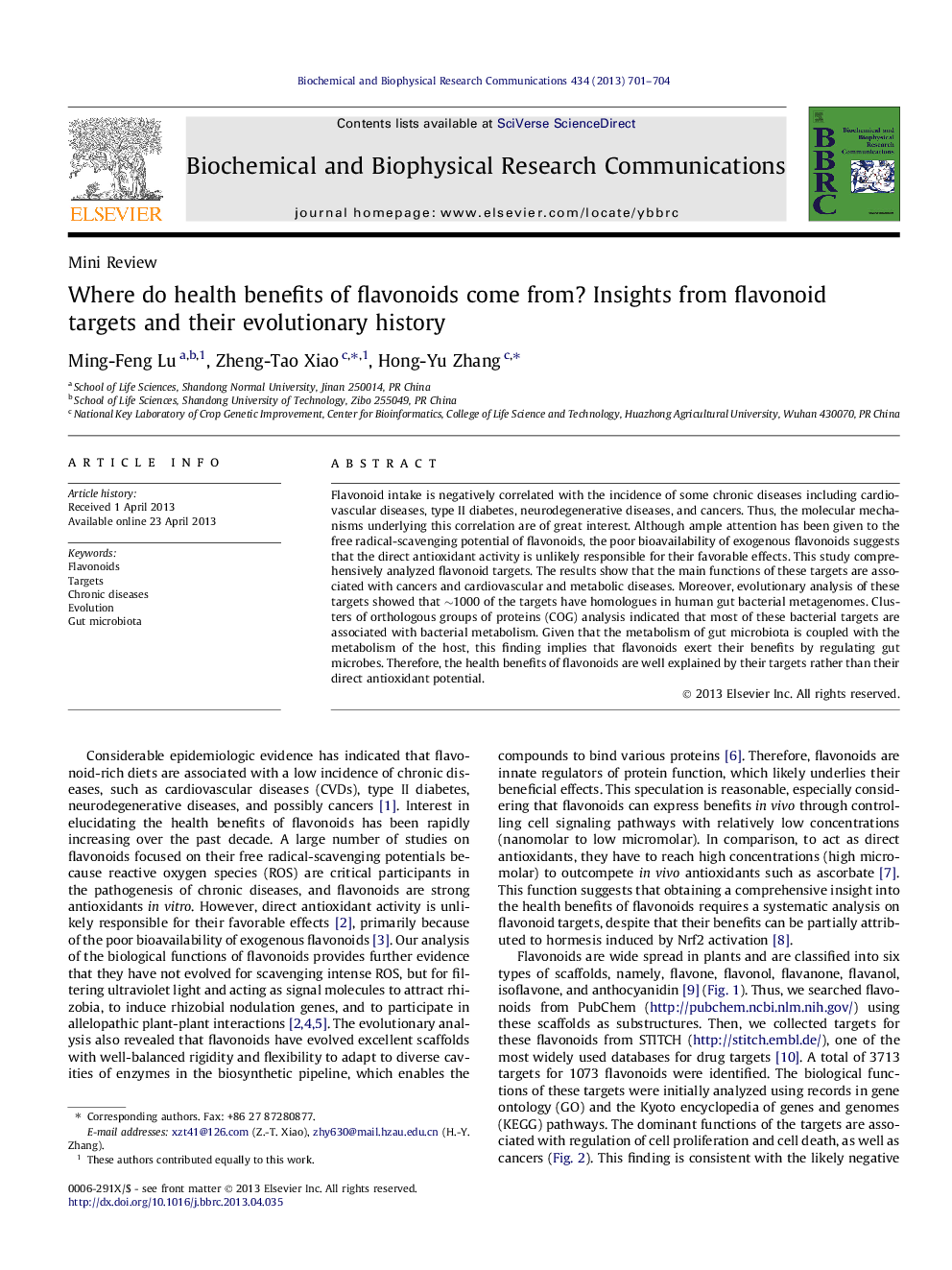| Article ID | Journal | Published Year | Pages | File Type |
|---|---|---|---|---|
| 10759366 | Biochemical and Biophysical Research Communications | 2013 | 4 Pages |
Abstract
Flavonoid intake is negatively correlated with the incidence of some chronic diseases including cardiovascular diseases, type II diabetes, neurodegenerative diseases, and cancers. Thus, the molecular mechanisms underlying this correlation are of great interest. Although ample attention has been given to the free radical-scavenging potential of flavonoids, the poor bioavailability of exogenous flavonoids suggests that the direct antioxidant activity is unlikely responsible for their favorable effects. This study comprehensively analyzed flavonoid targets. The results show that the main functions of these targets are associated with cancers and cardiovascular and metabolic diseases. Moreover, evolutionary analysis of these targets showed that â¼1000 of the targets have homologues in human gut bacterial metagenomes. Clusters of orthologous groups of proteins (COG) analysis indicated that most of these bacterial targets are associated with bacterial metabolism. Given that the metabolism of gut microbiota is coupled with the metabolism of the host, this finding implies that flavonoids exert their benefits by regulating gut microbes. Therefore, the health benefits of flavonoids are well explained by their targets rather than their direct antioxidant potential.
Related Topics
Life Sciences
Biochemistry, Genetics and Molecular Biology
Biochemistry
Authors
Ming-Feng Lu, Zheng-Tao Xiao, Hong-Yu Zhang,
